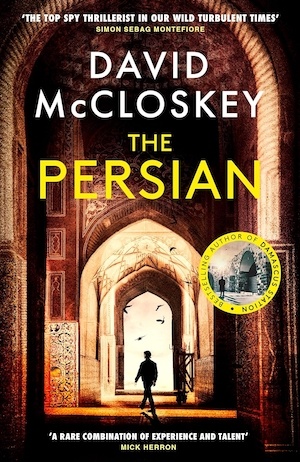If you are a museum fanatic, you can indulge in the arresting displays and exhibits located at these 11 museums spread across the globe. Be both empowered and informed, from luxury sports cars to Muslim art, from Scandinavian culture to exotic fashion.
Singapore — Singapore Fashion Museum
The Singapore Fashion Museum is a dynamic cultural institution, encapsulating the region’s rich tapestry of style and culture. Located at the Asian Civilisations Museum, this place is a captivating exploration of the diverse fashion landscape of Southeast Asia. The institution showcases an extensive collection of garments, accessories, and textiles meticulously curated to reflect the evolution of fashion across different eras and communities.
Read More: Singapore’s Fashion Museum Highlights The Style and Culture of the Region

Gorgeous textiles and fashion pieces are displayed at the Singapore Fashion Museum. Image: Asian Civilisations Museum.
Emphasising the fusion of tradition and modernity, the museum highlights the unique aesthetics of Singaporean and Southeast Asian fashion, offering visitors a nuanced understanding of the cultural influences that have shaped the region’s sartorial identity. From traditional costumes representing various ethnic groups to contemporary designs that push boundaries, the museum provides a comprehensive narrative of fashion’s role in expressing cultural heritage and societal shifts. The collection proudly displays a rich history in fashion textiles up to the mid-20th century, including Indonesian batiks, Indian trade textiles, and heritage Peranakan pieces.
The exhibitions delve into the craftsmanship behind garments, revealing the intricate techniques employed by local artisans and designers. Beyond mere displays, the Singapore Fashion Museum actively engages in educational initiatives, fostering a deeper appreciation for the interconnectedness of fashion, culture, and identity. Through its commitment to preserving and celebrating the region’s sartorial heritage, the museum stands as a vibrant testament to the dynamic and evolving nature of Southeast Asian style. Top exhibits include Andrew Gn’s red carpet creations, where he designed pieces for famous people.
Read More: Andy Warhol’s Unseen Work on Display at London’s Halcyon Gallery
Dubai — Museum Of the Future
The Museum of the Future in Dubai stands as a testament to architectural innovation and technological integration, representing a visionary leap into the future of museum design. The structure, resembling a torus, captivates with its avant-garde form, seamlessly merging art, science, and technology. Designed to embody Dubai’s commitment to progress and creative expression, the museum houses immersive exhibits exploring cutting-edge ideas and innovations.

The Museum of the Future in Dubai has striking Islamic designs on the facade. Image: The Museum of the Future in Dubai.
The exterior is adorned with intricate Arabic calligraphy inspired by classic poetry, forming a poetic dialogue between tradition and modernity. This design choice pays homage to the region’s rich cultural heritage but also serves as a visual metaphor for the seamless integration of past and future.
The Museum of the Future employs state-of-the-art technology, including interactive displays, augmented reality, and artificial intelligence, creating an engaging and educational experience. Visitors are transported into a realm where the boundaries between art and technology blur, offering a glimpse into the limitless possibilities of the future.
Dubai’s Museum of the Future transcends conventional museum norms, establishing itself as a dynamic hub for inspiration, exploration, and forward-thinking. Its architectural brilliance and commitment to pushing the boundaries of artistic expression make it a landmark in Dubai and on the global stage. The museum offers laboratory spaces, a 1,000-capacity multi-use hall, and a 345-seat lecture theatre.
Discover the Museum of the Future here
Los Angeles — The Petersen Automotive Museum
The Petersen Automotive Museum, renowned for celebrating automotive history and innovation, has curated a spectacular exhibition dedicated to hypercars. This collection showcases a mesmerising array of the world’s most exclusive and high-performance vehicles.

Cars galore at The Petersen Automotive Museum. Image: The Petersen Automotive Museum.
The exhibition delves into the evolution of hypercars, highlighting groundbreaking engineering and design achievements. Visitors can expect to witness iconic models from renowned manufacturers such as Bugatti, McLaren, and Koenigsegg.
Some exotic models include Bugatti Veyron 16.4, Aria FXE concept, Koenigsegg Agera RS Final Edition, McLaren Speedtail, and the electric Rimac Concept One. In addition, there’s the Lotus C-01, and the Aston Martin AMB 001. The display emphasises these machines’ raw power and speed and underscores their creation’s artistic and aesthetic aspects.
The Petersen Automotive Museum’s commitment to providing a comprehensive automotive experience is evident in the curation of this hypercar exhibition. By bringing together a diverse selection of hypercars, the museum offers enthusiasts and visitors a rare opportunity to explore the intersection of cutting-edge technology, automotive design, and the pursuit of unparalleled performance. This exhibition serves as a testament to the ongoing evolution of the automotive industry and its capacity to push the boundaries of what is possible in hyper-performance vehicles.
Explore The Petersen Automotive Museum here
Scandinavia — Seashell House Museum
The Scandinavian Seashell House, envisioned by Italian Architecture firm Wafai Architecture, emerges as a captivating museological concept. This innovative architectural proposal transforms a distinctive seashell-shaped structure into a Museum of Life, fusing Scandinavian design principles with a visionary approach to cultural preservation.

Seashell House Museum features an ocean-inspired design. Image: Seashell House Museum.
Wafai Architecture’s proposal is rooted in the aesthetic harmony of Scandinavian design, epitomised by clean lines, minimalist forms, and a deep connection with nature. The seashell-inspired structure is an architectural marvel and a repository for cultural artifacts and narratives. The Museum of Life concept aims to encapsulate the essence of existence through curated exhibitions celebrating diverse facets of human experience.
The article emphasises the fusion of modern design elements with organic inspiration drawn from seashells, creating a unique and immersive space. Wafai envisions the museum as a beacon of cultural heritage, fostering a sense of identity and interconnectedness. As a potential cultural landmark, the Scandinavian Seashell House promises to be a testament to the symbiosis between architecture and nature and preserving collective human stories.
Read More: Wafai Envisions The Scandinavian Seashell House As a Museum of Life
Shanghai — The Modern Art Museum (MAM)
The link provided discusses the potential transformation of Shanghai into an artists’ haven with the establishment of MAM Shanghai, a contemporary art museum set to open in 2024. MAM, which stands for Modern Art Museum, aims to become a dynamic hub for artistic expression and cultural dialogue in the city’s heart. The museum is poised to showcase diverse contemporary art forms, fostering a vibrant, creative atmosphere.

Fantastic exhibitions abound in Shanghai’s MAM. Image: Shanghai – The Modern Art Museum (MAM).
Designed by architect Atelier Deshaus, MAM Shanghai promises to be a groundbreaking architectural marvel, seamlessly blending modern aesthetics with functional design. The museum’s innovative spaces are expected to provide artists with unique opportunities for experimentation and collaboration, contributing to the cultural landscape of Shanghai.
Moreover, MAM Shanghai is anticipated to be pivotal in nurturing emerging talent, offering residencies and programs to support artists’ creative journeys. As a catalyst for artistic exploration, the museum seeks to engage the local community and attract global attention, solidifying Shanghai’s position as a prominent destination for contemporary art. The initiative represents a significant step towards establishing the city as a thriving centre for artistic innovation and cultural exchange in the coming years. In March 2024, contemporary Irish artist Robyn Ward will open his first exhibition in China, where people can experience an immersive solo show. Following that, in May 2024, there’s “David Hockney: Paper Trails” – the largest exhibition of the acclaimed British artist’s prints.
Discover the MAM Shanghai here
Read More: MAM Shanghai Poised to Become an Artist’s Haven in 2024
Germany — Vitra Design Museum
The Vitra Design Museum, situated in Weil am Rhein, Germany, stands as an architectural and cultural landmark dedicated to celebrating design innovation. Established in 1989 by the Vitra furniture company, the museum’s iconic campus features a striking ensemble of buildings designed by renowned architects Herzog & de Meuron. These architectural marvels embody the museum’s commitment to pushing the boundaries of design and creativity.

Herzog de Meuron’s VitraHaus. Image: Vitra.
The museum’s collection is a testament to the evolution of design across the 19th, 20th, and 21st centuries, showcasing an array of furniture, industrial products, and architectural models. Its exhibitions explore the intersection of design, art, and culture, presenting a comprehensive narrative of design history. Notable exhibitions have featured the works of influential designers such as Charles and Ray Eames, Verner Panton, and Alexander Girard.
In addition to its permanent and temporary exhibitions, the Vitra Design Museum hosts educational programs, lectures, and workshops, fostering a dynamic platform for design discourse. The museum’s commitment to advancing design thinking and its awe-inspiring architectural backdrop make it a must-visit destination for design enthusiasts and cultural connoisseurs alike.
For more on The Vitra Design Museum, click here.
Qatar — The Museum of Islamic Art

I.M. Pei designed The Museum of Islamic Art. Image: Qatar – The Museum of Islamic Art.
The Museum of Islamic Art, designed by renowned architect I.M. Pei, is a masterpiece of contemporary architecture in Doha, Qatar. Completed in 2008, the museum is a stunning synthesis of Islamic architectural elements and Pei’s modernist vision. Situated on its island, the building’s geometric forms and interplay of light and shadow evoke a sense of timelessness and elegance.
Pei’s design pays homage to traditional Islamic architecture with features like the domed structure and pointed arches, yet he skillfully integrates modern materials and technology. The use of reflective glass and a limestone facade provides a contemporary aesthetic and helps regulate the interior climate.
The museum showcases a vast collection of Islamic art spanning 1,400 years, including manuscripts, ceramics, textiles, and metalwork. The layout is carefully curated to guide visitors through the Islamic world’s rich cultural and artistic heritage. The museum’s central courtyard, with its geometric patterns and water features, serves as a tranquil oasis, inviting contemplation and reflection.
The Museum of Islamic Art stands as a testament to Pei’s ability to harmoniously blend tradition and innovation, creating a cultural landmark that not only houses invaluable artifacts but also serves as a symbol of Qatar’s commitment to preserving and celebrating Islamic art and heritage.
Discover The Museum of Islamic Art here
New York — The Museum of Modern Art (MoMA)
The Museum of Modern Art (MoMA) in New York City stands as a global beacon of contemporary and modern art. Founded in 1929 by Abby Aldrich Rockefeller and two other visionary women, the museum has evolved into a premier institution with an extensive collection that spans paintings, sculptures, photographs, films, and design objects.

The Museum of Modern Art (MoMA) is a must-see in the Big Apple. Image: New York – The Museum of Modern Art (MoMA).
MoMA’s collection is a testament to the transformative power of 20th and 21st-century artistic movements, housing iconic works by masters such as Pablo Picasso, Vincent van Gogh, and Jackson Pollock. The museum is celebrated for its commitment to showcasing avant-garde and experimental art, reflecting the ever-changing landscape of creativity.
Renowned for its architectural significance, MoMA underwent a significant expansion and renovation in 2019, enhancing its gallery spaces and public areas. The museum’s commitment to education and engagement is evident through its diverse programmes, exhibitions, and initiatives, making art accessible to a broad audience.
MoMA remains a cultural touchstone, inspiring discourse on the evolution of artistic expression and its impact on society. As a vital hub for contemporary creativity, the Museum of Modern Art continues to shape the narrative of art’s dynamic trajectory.
Explore The Museum of Modern Art (MoMA) by clicking here
Spain — The Guggenheim Museum Bilbao
The Guggenheim Museum Bilbao, an architectural masterpiece by renowned architect Frank Gehry, is an iconic symbol of avant-garde design and cultural innovation. Situated in Bilbao, Spain, the museum is a triumph of contemporary architecture, seamlessly blending organic forms with cutting-edge technology.

Frank Gehry’s striking masterpiece – The Guggenheim Museum Bilbao. Image: The Guggenheim Museum Bilbao.
Opened in 1997, the museum’s distinctive titanium-clad structure reflects Gehry’s signature deconstructivist style, characterized by fluid, curvilinear shapes that challenge traditional notions of space and form. The undulating metallic panels create a dynamic interplay of light and shadow, giving the building a constantly changing appearance throughout the day.
The Guggenheim Museum Bilbao’s interior is equally striking, featuring expansive gallery spaces designed to accommodate a diverse range of contemporary art installations. The museum’s commitment to showcasing avant-garde works extends to its innovative educational programs and collaborative initiatives, fostering a dynamic cultural environment.
Beyond its architectural significance, the Guggenheim Museum Bilbao has become a cultural hub, attracting visitors from around the globe. Its impact on the city of Bilbao is immeasurable, contributing to the revitalization of the urban landscape and solidifying its place as a global cultural destination. In essence, the Guggenheim Museum Bilbao stands as a testament to architecture’s transformative power in shaping a city’s cultural identity.
Discover the Guggenheim Museum Bilbao here.
Italy — Enzo Ferrari Museum
The Enzo Ferrari Museum in Modena, Italy, is a testament to the legacy of one of the automotive industry’s most iconic figures. Dedicated to Enzo Ferrari, the founder of the renowned Ferrari automobile company, the museum offers a comprehensive exploration of his life, vision, and the evolution of Ferrari’s exceptional vehicles.

Ferrari cars from past to present at Enzo Ferrari Museum. Image: Enzo Ferrari Museum.
The museum’s architecture is a masterpiece designed by Jan Kaplický and Andrea Morgante. Its striking yellow roof, inspired by the hood of a Ferrari, captivates visitors even before they enter the exhibition space. Inside, the museum houses a remarkable collection of Ferrari cars, showcasing the brand’s evolution from its early days to the present.
The exhibits are curated to provide an immersive experience, combining historical artefacts, multimedia presentations, and interactive displays. Visitors can delve into Enzo Ferrari’s history, gaining insights into his passion for racing and his role in shaping the Ferrari brand. Additionally, the museum celebrates the technical innovations that have propelled Ferrari to the forefront of automotive excellence.
Located in the heart of Modena, the Enzo Ferrari Museum is a must-visit destination for automotive enthusiasts, offering a captivating journey through the life and achievements of one of the industry’s most influential figures.
Explore the Enzo Ferrari Museum here
Denmark — Designmuseum Denmark
The Design Museum in Copenhagen, Denmark, stands as a beacon of creativity and innovation, showcasing the rich tapestry of design history and its impact on society. Nestled in the heart of the Danish capital, this institution is a cultural hub for design enthusiasts and scholars.

Furniture lovers will gawk at all the important furniture pieces from design greats. Image: Designmuseum Denmark.
The museum’s collection is a treasure trove of design artefacts spanning various disciplines, including furniture, fashion, industrial design, and graphic arts. These include essential works from Arne Jacobsen and Kaare Klint, to name a few. Visitors are treated to a visual feast of iconic pieces reflecting Danish design heritage and global influences. From sleek mid-century modern furniture to avant-garde fashion creations, the museum’s exhibitions offer a comprehensive overview of design evolution.
One of the Design Museum’s key strengths is its ability to bridge the gap between tradition and innovation. By exploring the cultural significance of design in society, the museum sheds light on the transformative power of creativity. Through interactive programs and workshops, visitors of all ages can engage with design concepts and gain a deeper appreciation for the art form.
In addition to its permanent collection, the Design Museum hosts temporary exhibitions that delve into specific themes or movements within the design world. These dynamic showcases provide a platform for emerging designers to share their vision and push the boundaries of traditional design norms.
Overall, the Design Museum in Copenhagen is a testament to the enduring relevance of design in shaping our world. It serves as a source of inspiration and education, inviting visitors to explore the beauty and functionality of design in all its forms.
Discover the Design Museum in Copenhagen here
For more on the latest in art and culture reads, click here.








